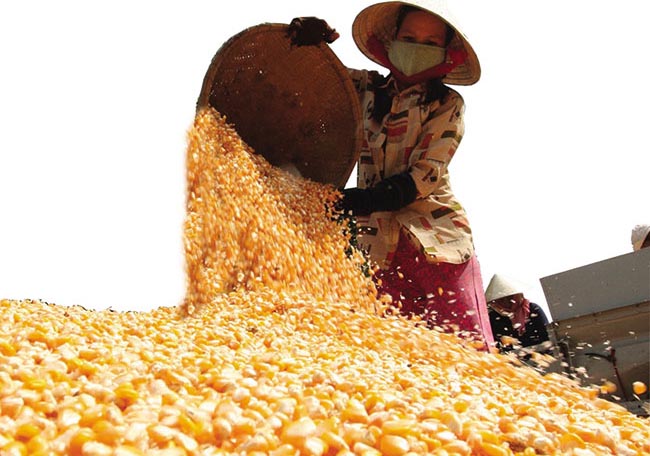Agribusiness a fallow field

Vietnam’s agriculture sector is falling behind that of regional peers
The World Bank has released its “Enabling the Business of Agriculture 2016” report which examines regulations that affect private enterprise in agribusiness in 40 countries around the world.
Results from the report show that Vietnam’s agricultural business climate is well below the 40-country average. Within the ASEAN region, Vietnam is only doing better than Cambodia, Laos, and Myanmar.
For instance, the business climate for seed trading hit 62.5 points (out of a maximum 100 points), which is lower than Cambodia’s 68.8, Bangladesh’s 70.8, and the Philippines’ score of 83.
The main reasons for this low rating include difficulties in new variety registration and imports, and slow granting of certificates (901 days), versus the Philippines and Myanmar (571 and 306 days, respectively).
Vietnam also ranks very low (24.4 points) for its agricultural machinery market. Although the country allows the import of the machines, it fails to manage the standards of the products due to a lack of regulations.
With its agricultural financial market scoring only 45.3 points, and its agricultural transport sector reaching just 54.8 points, it is hardly surprising that Vietnam ranks 35 out of 40 nations surveyed.
Nguyen Anh Tuan, director of the Ministry of Agriculture and Rural Development’s Institute of Policy and Strategy for Agricultural Development (IPSARD), said that “Vietnam’s agricultural business climate is making it difficult to attract investors, especially foreign ones.”
A recently-released IPSARD survey on agricultural business in Vietnam showed that 50 per cent of respondents lamented the lack of land sites, even in rural areas. Some 67 per cent of respondents said the government’s unfavourable land policy was preventing their investments. Only 17 per cent could enjoy the government’s land lease incentives. While 65 per cent could not access preferential bank loans, 76 per cent believed that complicated administrative procedures would continue impeding their business development over the next five years.
The Vietnam Association of Advanced Technology Enterprise in Agriculture, representing over 30 hi-tech agricultural enterprises, claimed that hi-tech agricultural enterprises were still hurt by land, tax, and capital problems.
Da Lat Flower Biotechnology JSC’s general director Nguyen Dinh Son said that his company found it hard to access medium-term loans. Currently, only short-term loans could be accessed, but with great difficulty.
Echoing this view, Dutch-backed Dalat Hasfarm Company’s vice general director Nguyen Van Bao also said that his company was forced to pay duties for its imported modern greenhouses, even though the greenhouses were exempt from import taxes as they could not be produced locally.
Can Van Luc, one of the leaders of the Bank for Investment and Development of Vietnam, also stressed the firms’ woes by relating a typical story from several months ago when he received two emails from two local enterprises complaining that they were forced by a customs office to pay a 7 per cent export tax rate for their cassava exports, even though such products were totally exempt from export tax.
“I then passed the emails to the Ministry of Industry and Trade asking for clarity. The matter was quickly resolved,” Luc said.
“The problem here is that the state’s policy may be good, but implementation in localities is another issue,” he added.
What the stars mean:
★ Poor ★ ★ Promising ★★★ Good ★★★★ Very good ★★★★★ Exceptional
Latest News
More News
- Hermes joins Long Thanh cargo terminal development (February 04, 2026 | 15:59)
- SCG enhances production and distribution in Vietnam (February 04, 2026 | 08:00)
- UNIVACCO strengthens Asia expansion with Vietnam facility (February 03, 2026 | 08:00)
- Cai Mep Ha Port project wins approval with $1.95bn investment (February 02, 2026 | 16:17)
- Repositioning Vietnam in Asia’s manufacturing race (February 02, 2026 | 16:00)
- Manufacturing growth remains solid in early 2026 (February 02, 2026 | 15:28)
- Navigating venture capital trends across the continent (February 02, 2026 | 14:00)
- Motivations to achieve high growth (February 02, 2026 | 11:00)
- Capacity and regulations among British areas of expertise in IFCs (February 02, 2026 | 09:09)
- Transition underway in German investment across Vietnam (February 02, 2026 | 08:00)
















 Mobile Version
Mobile Version